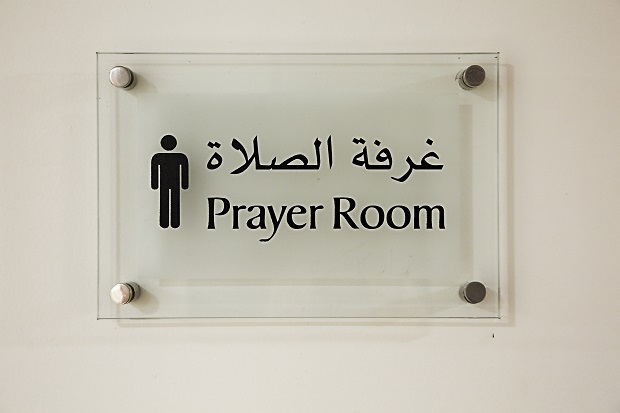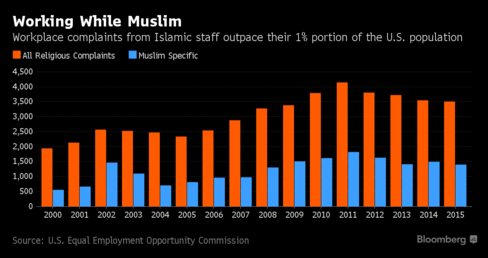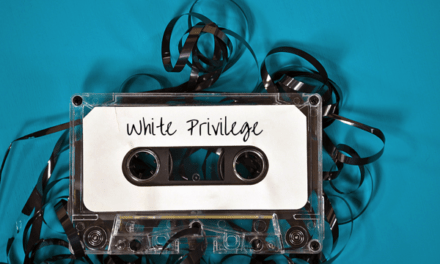
While it hasn’t made a “buzz,” Bloomberg recently reported some interesting and notable figures and practices that capture the progress and work left to be done in creating workplaces that are inclusive of religious diversity.
On the positive side, more organizations are being intentional in identifying strategies that create a culture where employees can bring their religious identities to work. Considering our current social climate– where radical rhetoric and terrorist attacks have caused many to regress to stereotypes grounded in fear–it was refreshing to see how organizations are combatting those sentiments in the workplace. One financial services organization was cited as providing transportation to mosques, and other places of worship, for employees who worked in offices without prayer rooms. A consulting firm was mentioned as being more mindful of Muslim and other religious holidays when organizing company events. Another organization hosted employee forums and Q&A sessions to dispel myths and concerns that Islam is a dangerous faith. These are few practical, yet impactful ways to begin to intentionally include religious diversity as part of the organization’s D&I strategy.

Furthermore, if the moral, principled “business case,” isn’t grounds enough to begin identifying how these practices may fit in to your company, perhaps the legal case is. Bloomberg also found that, while Muslims only make up about one-percent of the U.S. population, nearly 40 percent of all the EEOC’s religion based workplace complaints filed were related to Muslims. Most of these complaints were around lack of reasonable accommodations and harassment by peers—both of which are usually grounded in leaders and employees’ lack of cultural competence around religious diversity.
This is a trend that we also explore in our Global D&I Tipping Point Report. The changing religious population, coupled with the rise of rhetoric that perpetuates intolerance towards specific religious groups, present distinct challenges that require increased employer understanding, flexibility and cross-cultural competence.



















I have heard of instances where there have been muslims that felt like their co-workers did not treat them well at work, and ultimately left their position because the conditions were so uncomfortable. I do not think this is right, and we should work toward an inclusive and diverse workplace in every sense. I think that by having team building events or social gatherings it helps people get to know each other on a different level. Also, I do think management or HR does need to set forth expectations on what is not allowed as far as bullying, negativity, verbiage, etc.